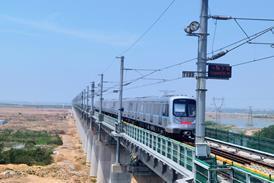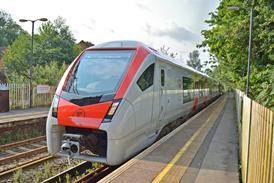IT WAS DISINGENUOUS of German Railway Chairman Hartmut Mehdorn to imply at DB’s 1999 annual results press conference on May 10 in Berlin (p333) that Austrian Federal Railways’ announcement the previous day about plans to withdraw rail services from a quarter of its 5653 km network pointed the way ahead. Far from it, for resorting to service cuts or closures on this scale is an admission of defeat by ’old railway’ management in the face of huge political and administrative obstacles.
ÖBB’s problem is that it has lamentable employee productivity with 9·5 staff per route-km, which is more even than Italian State Railways with 7·25 (1998 figures). As other countries discovered 30 years ago, rural and regional routes which carry only a few trains a day are clearly going to be a disproportionate drain on the budget if stations remain fully staffed, with traditional signalling and teams of people tending flower beds.
ÖBB is to decide in the next few months which of 35 routes designated part of the so-called ’C-Network’ should keep their passenger and freight services. While ÖBB Director General Dr Helmut Draxler says it is open to local authorities, tourist companies and the private sector to run the services, it is not clear what will happen to staff on the affected routes.
Austrian Infrastructure Minister Michael Schmid at once sought to distance himself from ÖBB’s position, saying he would ’apply the brakes a little’ to Dr Draxler. What he should really be doing is putting the operation of social services onto a formal contractual basis, giving ÖBB the freedom to run its own business, and ceasing to require the railway to provide artificial employment where there is no real job to do.
- Schmid announced on May 11 that the upgrading of the Wien - Linz main line to provide four tracks throughout is to have priority over other railway investment projects; target completion date is 2010. Among schemes to be delayed is construction of the Lainzer tunnel forming part of the planned link between the Westbahn and Südbahn in Wien, which should save ASch3·4bn. The Westbahn upgrading is expected to cost ASch17bn, and some of the funds are likely to come from the sale of mobile telephone licences.




















